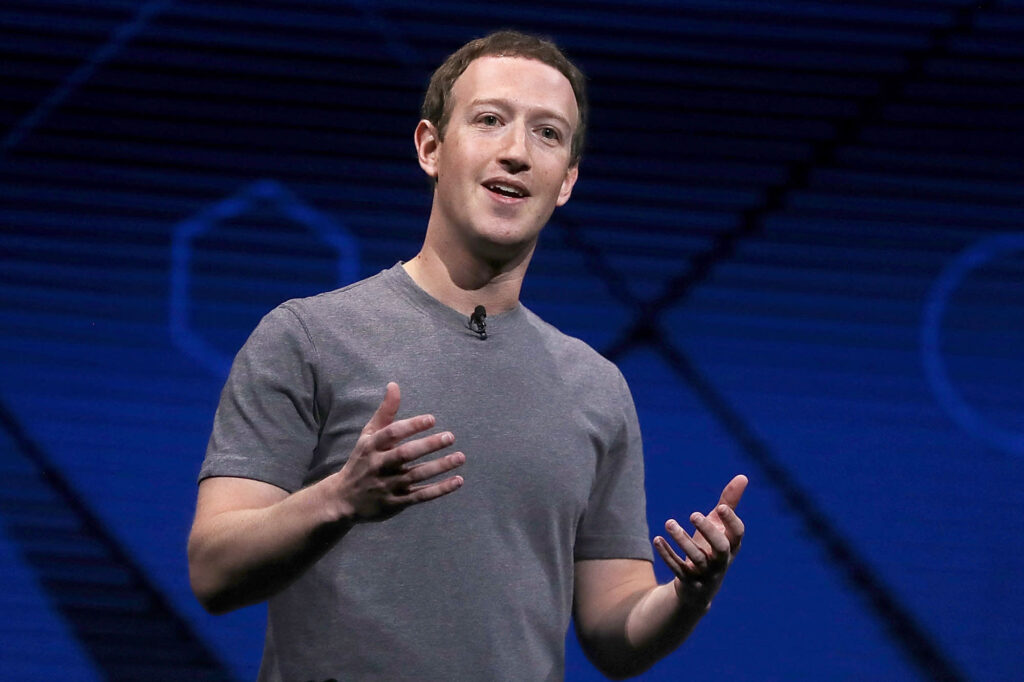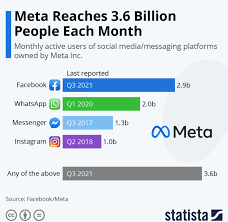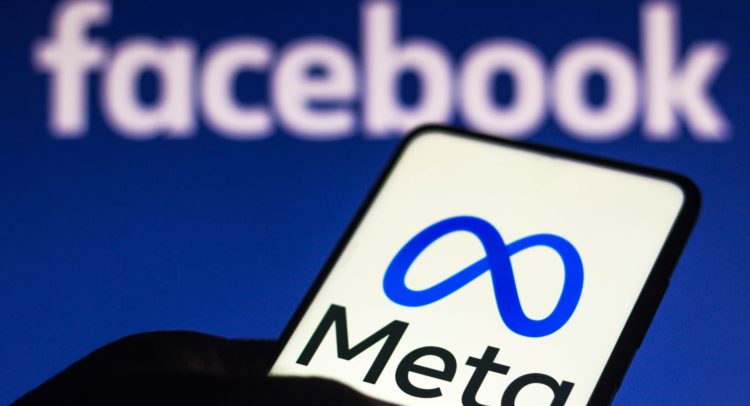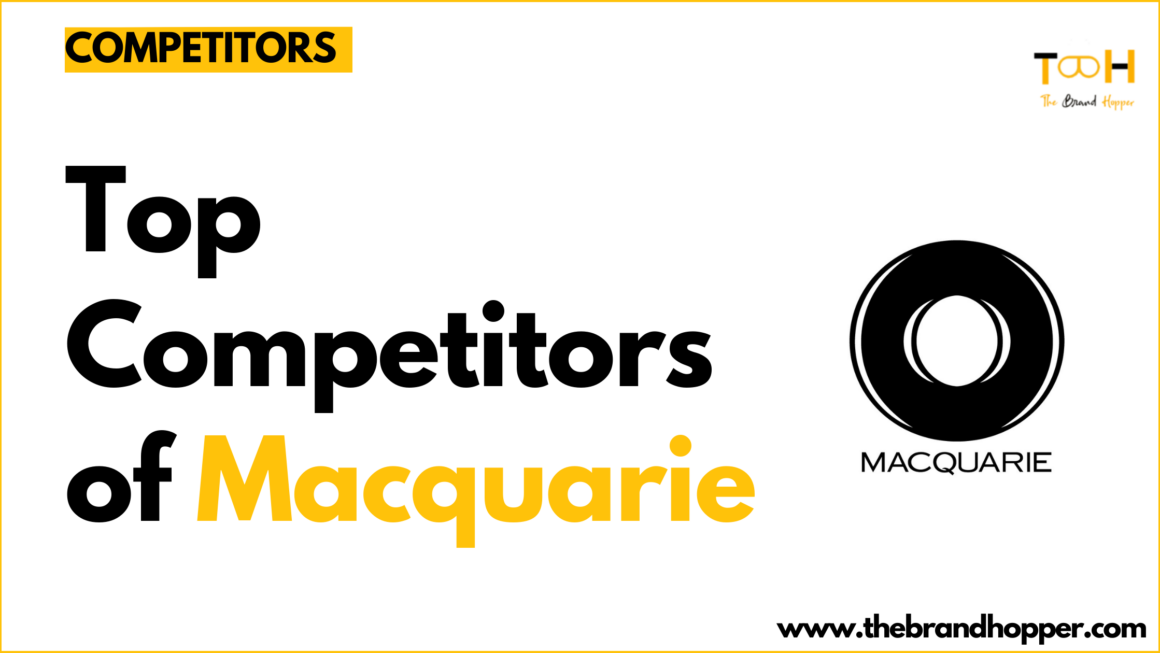Meta Platforms, formerly known as Facebook, is a social media and technology company that operates a variety of platforms and apps, including Facebook, Instagram, WhatsApp, and Oculus VR. The company was founded in 2004 by Mark Zuckerberg and has since grown into one of the largest and most influential technology companies in the world.
The term “meta platforms” refers to the company’s new vision for the future, which is focused on creating a more immersive, interconnected, and personalized online experience. The goal is to create a “metaverse,” a term coined by science fiction author Neal Stephenson to describe a virtual world that is fully immersive and interactive, where users can engage with each other in real-time.
Meta’s vision for the metaverse is to create a platform that is not just a collection of apps, but a unified system that connects people, devices, and experiences. This will allow users to seamlessly move between different virtual experiences, whether they are playing games, shopping, socializing, or attending virtual events.
One of the key features of the metaverse is interoperability, which means that users will be able to bring their digital assets, such as avatars, virtual goods, and even cryptocurrencies, from one platform to another. This will create a more seamless and connected experience for users, regardless of which platform they are using.
Meta is also investing heavily in virtual and augmented reality technologies, such as the Oculus VR platform, which allows users to fully immerse themselves in virtual environments. These technologies will play a crucial role in the development of the metaverse, as they will enable users to interact with each other and with virtual objects in a more natural and intuitive way.
In addition to its consumer-facing products, Meta also offers various tools and services for businesses, including advertising and analytics tools, as well as an e-commerce platform for small businesses. The company has offices and data centers around the world, and it employs over 100,000 people as of 2022.
History of Facebook / History of Meta
Meta Platforms, formerly known as Facebook, was founded by Mark Zuckerberg, along with fellow students at Harvard University in 2004. Initially, the website was exclusively for Harvard students, but soon expanded to other universities, and eventually became available to anyone with an email address.

In 2005, the company received its first major investment from venture capitalist Peter Thiel, and by 2006, it had over 12 million registered users. In the same year, it introduced the News Feed, a feature that allowed users to see updates from their friends and other pages they followed in a single stream. This was followed by the introduction of the Like button in 2009, which quickly became one of the company’s most iconic features.
In 2012, Facebook went public, with an initial public offering (IPO) that valued the company at over $100 billion. However, the IPO was marred by technical glitches and accusations of insider trading, and the company’s stock price initially struggled. It wasn’t until 2013 that Facebook’s stock price recovered and the company began to experience steady growth again.
Over the years, Facebook has acquired a number of other companies, including Instagram in 2012 and WhatsApp in 2014. These acquisitions have helped the company to expand its reach and capabilities, and have also helped it to fend off competition from other social media platforms.
In recent years, however, Facebook has faced a number of controversies, including accusations of spreading fake news and misinformation, mishandling user data, and allowing harmful content to spread on its platform. In response, the company has made a number of changes to its policies and has invested heavily in content moderation and safety measures.
In October 2021, Facebook announced that it was rebranding as Meta Platforms, as part of its new focus on building the metaverse. The move was intended to signal a new direction for the company, one that is focused on creating a more immersive and interconnected online experience. Since then, the company has continued to invest heavily in virtual and augmented reality technologies, and has announced a number of new products and features aimed at building the metaverse.
Growth of Meta over the years – The Meta Timeline
Meta Platforms, formerly known as Facebook, has grown significantly since its founding in 2004. Here are some key milestones in the company’s growth:
- 2004: Facebook is founded by Mark Zuckerberg, along with fellow students at Harvard University.
- 2005: The website expands beyond Harvard to include other universities, and eventually becomes available to anyone with an email address.
- 2006: Facebook introduces the News Feed, a feature that allows users to see updates from their friends and other pages they follow in a single stream.
- 2009: The Like button is introduced, quickly becoming one of the company’s most iconic features.
- 2010: Facebook reaches 500 million users.
- 2012: Facebook goes public with an initial public offering (IPO) that values the company at over $100 billion, and acquires Instagram for $1 billion.
- 2014: Facebook acquires WhatsApp for $19 billion.
- 2015: Facebook introduces the Reactions feature, allowing users to react to posts with more than just a Like.
- 2016: Facebook introduces Facebook Live, a feature that allows users to broadcast live video.
- 2018: Facebook is embroiled in a scandal involving the political consulting firm Cambridge Analytica, which harvested the data of millions of Facebook users without their consent.
- 2019: Facebook reaches 2.4 billion monthly active users, and announces plans to integrate the messaging systems of Facebook, Instagram, and WhatsApp.
- 2020: Facebook’s revenue reaches $70.7 billion, and the company announces plans to launch a cryptocurrency called Libra (now called Diem).
- 2021: Facebook rebrands as Meta Platforms, and announces plans to focus on building the metaverse.
Throughout its history, Facebook/Meta has experienced significant growth in terms of users, revenue, and influence. The company has also faced a number of controversies and challenges, particularly in recent years, as it has become a major player in the global tech industry. Nevertheless, it remains one of the most popular and influential social media platforms in the world, with billions of users and a vast ecosystem of apps, services, and features.
Meta Growing Customers and Revenue over the years
Monthly active users (MAUs): Meta’s user base has grown steadily over the years, reaching 2.8 billion MAUs as of December 2021. This represents a significant increase from the company’s early years, when it had just a few million users. The growth in MAUs has been driven by a number of factors, including the expansion of the company’s platform, the acquisition of other social media platforms like Instagram and WhatsApp, and the increasing ubiquity of mobile devices.

Revenue: Meta’s revenue has grown significantly over the years, driven largely by the company’s data-driven advertising model. In 2021, the company reported revenue of over $100 billion, up from just a few hundred million in its early years. The growth in revenue has allowed the company to invest heavily in new technologies and services, and has made it one of the most valuable companies in the world.
Advertising revenue: Advertising revenue is a key source of revenue for Meta, and has grown significantly over the years. In 2021, the company reported advertising revenue of over $98 billion, up from just a few million in its early years. The growth in advertising revenue has been driven by the company’s data-driven advertising model, which allows it to target ads with remarkable precision.
Daily active users (DAUs): Meta’s DAUs have also grown significantly over the years, reaching 1.91 billion as of December 2021. This reflects the increasing frequency with which users engage with the platform, and the growing importance of social media in people’s daily lives.
Mobile advertising revenue: Mobile advertising revenue has become an increasingly important source of revenue for Meta, as more and more users access the platform via mobile devices. In 2021, the company reported mobile advertising revenue of over $94 billion, up from just a few million in its early years.
Overall, Meta’s growth in these and other KPIs reflects the company’s success in expanding its user base, revenue, and influence over the years. However, it has also led to increased scrutiny from regulators, lawmakers, and the public, as concerns around issues like privacy, misinformation, and antitrust have become more pronounced.
How did Facebook (now Meta) become so influential?
Meta Platforms (formerly Facebook) became influential due to a combination of factors, including its user base, its data-driven advertising model, and its ability to shape public opinion and discourse.
One of the key drivers of Facebook’s influence is its massive user base, which includes over 3 billion monthly active users as of 2021. This gives the company an enormous reach and influence over people’s online behavior, including their social interactions, media consumption, and political views.
Facebook’s data-driven advertising model is also a major source of influence. The company uses sophisticated algorithms to collect and analyze user data, allowing it to target ads with remarkable precision. This has made Facebook one of the most effective advertising platforms in the world, and has given it significant influence over the advertising industry and the businesses that rely on it.
Moreover, Facebook’s news feed algorithm has a significant influence on the content that users see and engage with, shaping public opinion and discourse. The algorithm is designed to prioritize content that is likely to keep users engaged, which has led to the proliferation of clickbait, sensationalism, and misinformation on the platform. This, in turn, has had a major impact on political and social issues, with Facebook being accused of enabling the spread of fake news and disinformation.
Finally, Facebook’s influence also stems from its role as a major player in the global tech industry. The company has made a number of high-profile acquisitions, including Instagram and WhatsApp, and has developed a vast ecosystem of apps, services, and features. This has given Facebook significant power and influence over the direction of the tech industry, and has made it a key player in debates around issues like privacy, data protection, and antitrust regulation.
Overall, Facebook’s influence is the result of a complex interplay of factors, including its user base, its data-driven advertising model, its impact on public opinion and discourse, and its role as a major player in the tech industry. While this influence has brought the company significant success and power, it has also made it a lightning rod for criticism and controversy, particularly in recent years.
Mergers and Acquistions of Meta over the years
Meta Platforms (formerly Facebook) has made numerous mergers and acquisitions over the years, in an effort to expand its reach, capabilities, and influence in the tech industry. Here are some of the most notable:
Instagram (2012): In April 2012, Facebook announced that it was acquiring Instagram, a popular photo-sharing app, for $1 billion in cash and stock. The acquisition was seen as a major strategic move for Facebook, as it allowed the company to expand its presence in the mobile market and compete with other social media platforms like Twitter and Snapchat.
Oculus VR (2014): In March 2014, Facebook announced that it was acquiring Oculus VR, a virtual reality technology company, for $2 billion. The acquisition was seen as a bet on the future of virtual and augmented reality, and signaled Facebook’s interest in expanding beyond the realm of social media.
WhatsApp (2014): In February 2014, Facebook announced that it was acquiring WhatsApp, a popular messaging app, for $19 billion in cash and stock. The acquisition was seen as a way for Facebook to expand its messaging capabilities and tap into the rapidly growing mobile messaging market.
LiveRail (2014): In July 2014, Facebook announced that it was acquiring LiveRail, a video advertising platform, for an undisclosed sum. The acquisition was seen as a way for Facebook to expand its advertising capabilities and compete with Google’s YouTube platform.
Masquerade (2016): In March 2016, Facebook announced that it was acquiring Masquerade, a face-swapping app, for an undisclosed sum. The acquisition was seen as a way for Facebook to compete with Snapchat, which had become popular for its facial recognition and augmented reality features.
CTRL-labs (2019): In September 2019, Facebook announced that it was acquiring CTRL-labs, a neurotechnology startup, for an undisclosed sum. The acquisition was seen as a way for Facebook to develop new human-computer interfaces, using brain-machine interfaces and other advanced technologies.
Kustomer (2020): In November 2020, Facebook announced that it was acquiring Kustomer, a customer relationship management platform, for an undisclosed sum. The acquisition was seen as a way for Facebook to expand its e-commerce capabilities and compete with other online retailers like Amazon.
Overall, Meta’s mergers and acquisitions have allowed the company to expand its reach and capabilities, and to position itself as a major player in the tech industry. However, they have also raised concerns about the company’s growing power and influence, and have led to increased scrutiny from regulators and lawmakers around issues like privacy, antitrust, and competition.
Also Read: Microsoft – History of World’s Most Successful Technology Company
Future of Meta Platforms
The future of Meta Platforms (formerly Facebook) is likely to be shaped by a number of trends and factors, including evolving consumer behaviors, advances in technology, regulatory developments, and changing societal norms. Here are some potential scenarios for how the company may evolve in the years ahead:
Continued growth and dominance in the social media market: Meta’s user base has continued to grow steadily over the years, and the company is likely to continue to dominate the social media market in the years ahead. This growth is likely to be driven by the company’s expanding suite of products and services, as well as the increasing ubiquity of mobile devices.
Increased competition and diversification: While Meta currently dominates the social media market, it is likely to face increased competition from other players in the years ahead. This may lead the company to diversify its offerings and expand into new markets and industries.
Greater focus on privacy and security: As concerns around data privacy and security continue to grow, Meta is likely to place greater emphasis on protecting user data and maintaining the trust of its users. This may involve developing new technologies and protocols to safeguard user data, as well as working more closely with regulators and lawmakers to address these concerns.
Greater scrutiny from regulators and lawmakers: As Meta’s influence continues to grow, it is likely to face increased scrutiny from regulators and lawmakers around issues like privacy, antitrust, and competition. This may lead to greater regulation and oversight of the company, and may also create new opportunities for smaller, more niche players to enter the market.
Greater emphasis on virtual and augmented reality: As advances in virtual and augmented reality continue to accelerate, Meta is likely to place greater emphasis on developing new products and services in these areas. This may involve partnering with other companies in the space, or even acquiring new startups and technologies to stay ahead of the curve.
Overall, the future of Meta is likely to be shaped by a combination of evolving consumer behaviors, technological advances, regulatory developments, and changing societal norms. While the company’s dominance in the social media market is likely to continue, it will need to remain nimble and adaptable in order to stay ahead of the curve and continue to grow in the years ahead.
To read more content like this, subscribe to our newsletter




